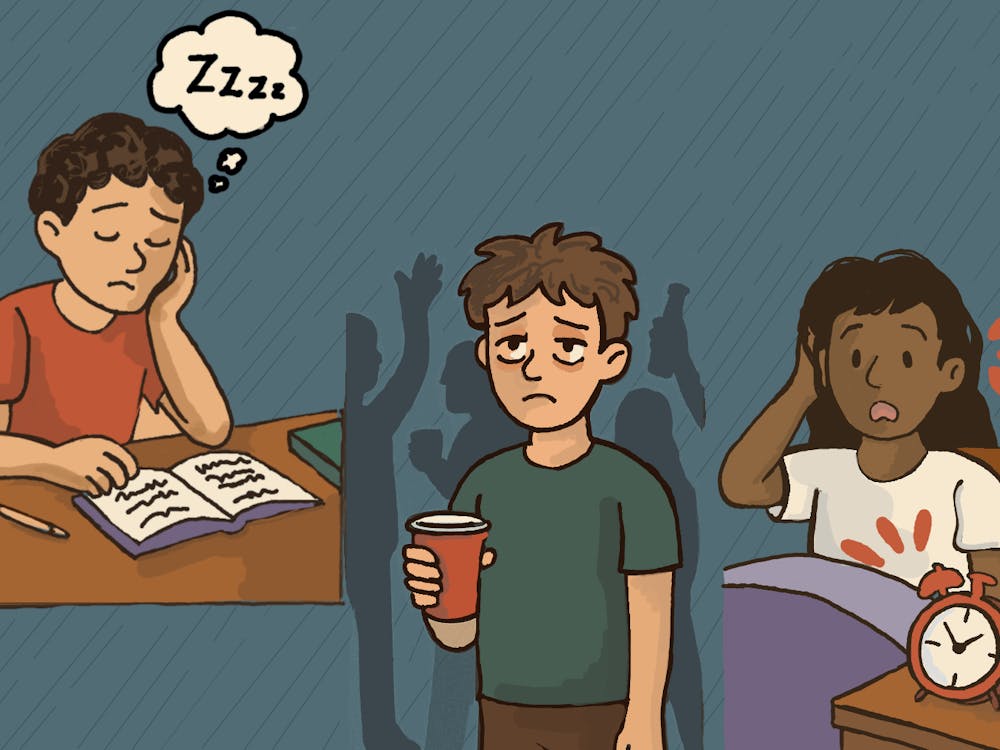My father and I used to stand in the kitchen and talk after he got home from work -- he having the customary after-work cocktail while I paced restlessly. Because we saw each other only a few hours a day during the week, he would take the opportunity to impart whatever advice he had floating around his mind, things ranging from the merits of law school to the persisting value of Springsteen records. Dad would often preface these lectures with the following maxim: Advice is useless.
So, I'd like to start my first column in the Life section with this maxim. That being said, I'm going to abuse this opportunity to have my unsolicited advice printed 10,000 times in today's paper, and throw some ideas against the wall. Hopefully, some of them will stick.
Really, it breaks down to one major theme: dialogue.
First, by dialogue, I mean face-to-face, real-time discussion with anyone, about anything. It seems like in a world of ever-increasing methods of communication, from online videos to blogs to cyber "communities" like Facebook, there should be ample opportunity for people to better communicate and understand each other and, as a result, themselves. With advancements in information technology, however, come opportunities for personalization, for us to find the news sources we agree with and choose the songs and ideas that fit our outlook the best.
Amid all of this, let's not overlook the benefit of one-on-one discussion and the pedagogical value of exploring ideas through dynamic and spontaneous discourse. Basically, let's put down the books, mouse and megaphone and let's talk.
Individual study of concepts works well enough for class preparation, but it seems like you can read for hours a day and still never digest ideas and arguments in a way that is useful and meaningful to you on an individual basis.
Even worse is taking after the talking heads on CNN and yelling your opinion at the top of your lungs with no goal in mind other than to convince everyone else that you are right, or at least to drown out their yelling. Conversely, it seems as though dismissing ideas as not worth our time or consideration except for passing quizzes or getting by in discussion does not really benefit us either. Neither approach seems to address any idea in a way that is useful to us on a personal level or lends to our individual development.
Socrates, the old Greek guy who established the foundations of Western thought, believed the only way we could ascertain anything interesting or useful is through dialectic, not argument or verbal conflict that relies on one set of ideas conquering the other.
Debate and argument have more to do with choosing the appropriate tactics to achieve victory than exploring and giving full treatment to an idea. Civilized debate is fine, but it's no path to truth.
What is really worthwhile in the pursuit of education, especially in the unique environment of the University, is dialogue: two people working together to investigate an idea and following that idea wherever it leads. This is how we really gain a better understanding of the concept, how we inch closer to truth and how we gain a little more insight into ourselves. Debate is by nature combative while dialogue is explorative and constructive. In a hyper-competitive community like that of the University, it's important to keep this distinction clear and to allow ourselves to indulge in dialogue.
In my view, we are all here at the University to understand ourselves and others and to take this rare opportunity to look at ideas for their own sake, not to constantly engage in ideological conquest. Though there is no denying that skill in debate has its merits and is the way that we make progress in policy and politics, it is vital that we allow dialogue to occur when we have the chance.
So in talking to anyone about anything at all -- if there is a mutual and earnest interest in exploring the idea and seeing where it takes you -- I guarantee you will discover something really worthwhile.






